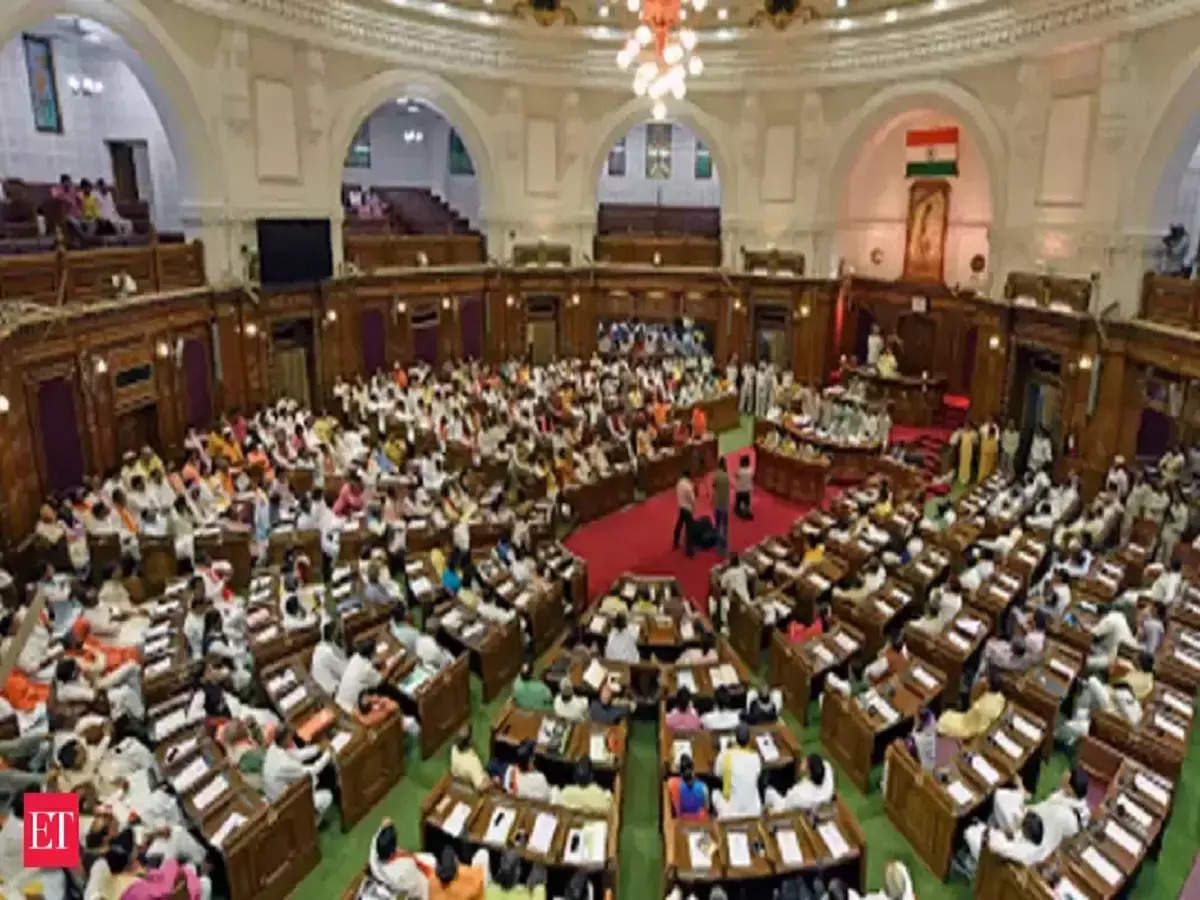Election of Speaker of state legislative assembly
Context
-
Recently, there is a tussle over election of Maharashtra Assembly Speaker.
Constitutional Provisions over election of Legislative Assembly Speaker
- Article 178 of the Constitution states: “Every Legislative Assembly of a State shall, as soon as may be, choose two members of the Assembly to be respectively Speaker and Deputy Speaker thereof and, so often as the office of Speaker or Deputy Speaker becomes vacant, the Assembly shall choose another member to be Speaker or Deputy Speaker, as the case may be.”
- The Constitution does not specify the process of holding these elections; that is left to the state legislatures.
- It also does not set a timeframe other than to say the elections should be held “as soon as may be”.
- Some states lay down timeframes: in Haryana for example, the election of the Speaker must be held as soon as possible after the Assembly election, and the Deputy Speaker must be elected within another seven days. In Uttar Pradesh, the Speaker’s election is required to be held within 15 days if the post falls vacant during the term of the Assembly.
- The date for the Speaker’s election is notified by the Governor.
What amendments were made to the Rules?
- As per Rule 6 of the Maharashtra Legislative Assembly Rules,
- “The Governor shall fix a date for the holding of the election and the Secretary shall send to every member notice of the date so fixed.”
- A former Secretary of the state Assembly said the election of the Speaker can take place only after the Governor fixes the date for it.
- The government moved a motion in the Assembly seeking amendments to Rules 6 (election of Assembly Speaker) and 7 (election of Deputy Assembly Speaker) by voice vote instead of a secret ballot. The amendments were proposed by the Rules Committee of the legislature.
- The amendments excluded the words “holding of the election” and included the words “to elect the Speaker on the recommendation of the Chief Minister” in Rule 6 of Maharashtra Legislative Assembly Rules.
- The amendments also replaced the provision of election of the Speaker by “secret ballot” with “voice vote”.
- The amendments were passed by voice vote in the face of opposition
What is the government’s position?
- The government has argued that the amendments are in line with the Rules that are in practice in Lok Sabha, the Upper House of the state legislature, and in the Assemblies of a several others states. It has also said that the amendments would put an end to horse-trading.
Way Forward
- The situation is very odd. While Rule 6 mandates that the Governor should fix the date for the election, the amendment says that the Governor should fix the date on the advice on the CM. It is a conflict between two constitutional entities.
- The Constitution provides that the office of the Speaker should never be empty. So, he continues in office until the beginning of the next House, except in the event of death or resignation.
Back to Basics
About Legislative Assembly Speaker
- The Speaker is the principal spokesman of the House.
- He represents its collective voice and is its sole representative to the world. Communications from the Governor to the House are made through the Speaker.
- Similarly communications to the Governor are made through the Speaker in the form of a formal address after a motion has been made and carried by the House.

Credit: Economic Times - As the representative of the House, the Speaker communicates the decisions of the House to the authorities concerned, requiring them to comply with the terms of such decisions. Similarly, he communicates to the House letters and documents addressed to him. He also issues warrants to execute the orders of the House, where necessary.
- The Speaker regulates the debates and proceedings of the House.
- He determines the order of the Government and other Business in the House.
- He has the power to recognize parties and groups in the House.
- The Speaker decides the admissibility of Questions as per the guiding principles laid down in the Rules. The Speaker decides on the admissibility of resolutions and motions.
- The consent of the Speaker is necessary for the presentation of petitions to the House.
- It is the Speaker who determines what matters are ‘money’ matters as these fall within the exclusive jurisdiction of the Legislative Assembly.
- If the Speaker certifies a Bill as a Money Bill, his decision is final.
- Under the Constitution, the Speaker exercises only a casting vote in the case of equality of votes in any matter.
- The Speaker holds the Office from the date of his election till immediately before the first meeting of the Legislative Assembly after the dissolution of the one to which he was elected, unless he ceases to be a member by any of the reasons specified in Article 179 of the Indian Constitution.
Visit Abhiyan PEDIA (One of the Most Followed / Recommended) for UPSC Revisions: Click Here
IAS Abhiyan is now on Telegram: Click on the Below link to Join our Channels to stay Updated
IAS Abhiyan Official: Click Here to Join
For UPSC Mains Value Edition (Facts, Quotes, Best Practices, Case Studies): Click Here to Join
